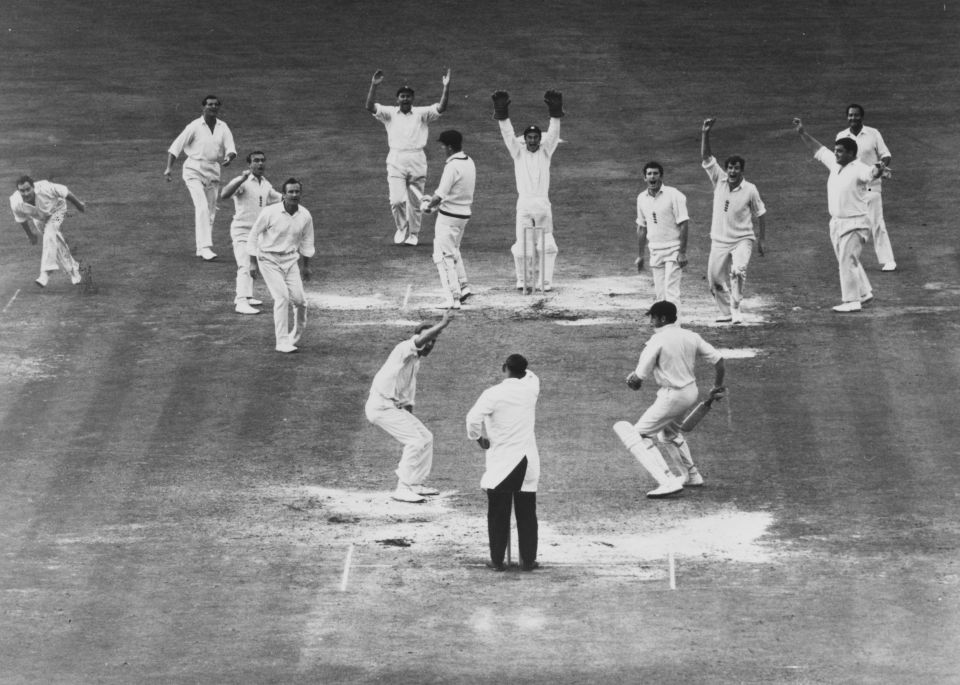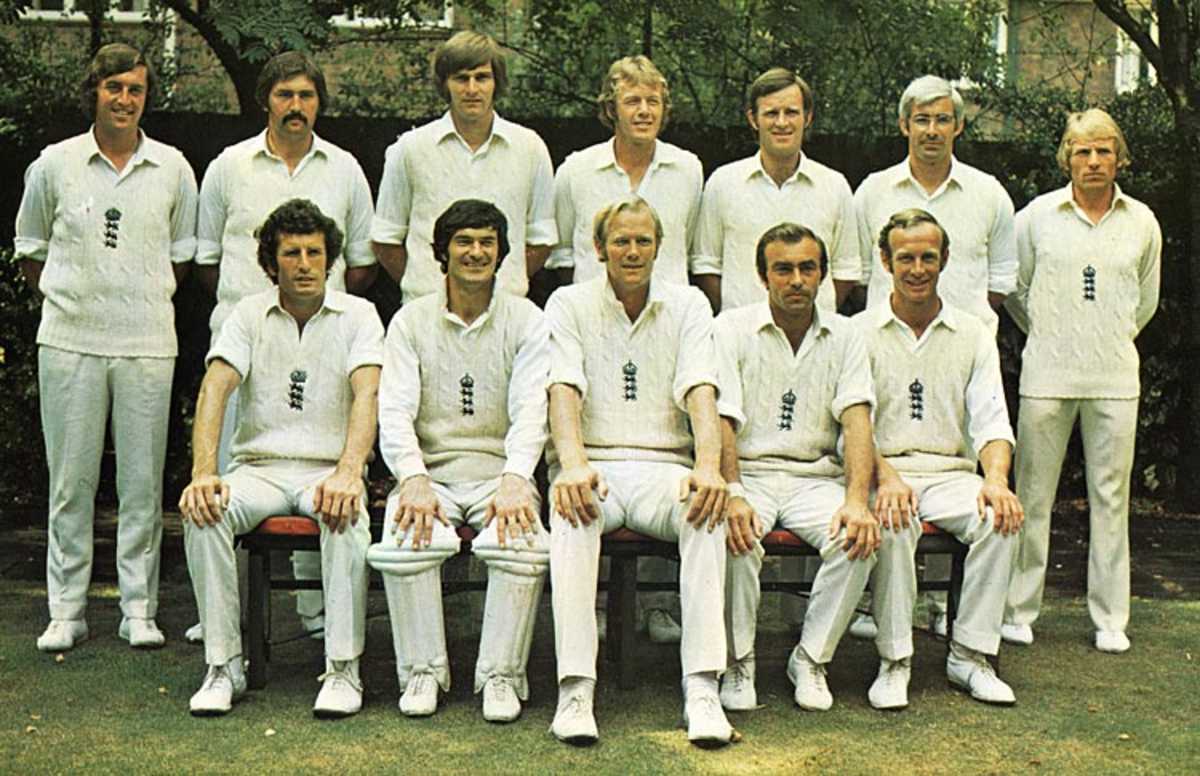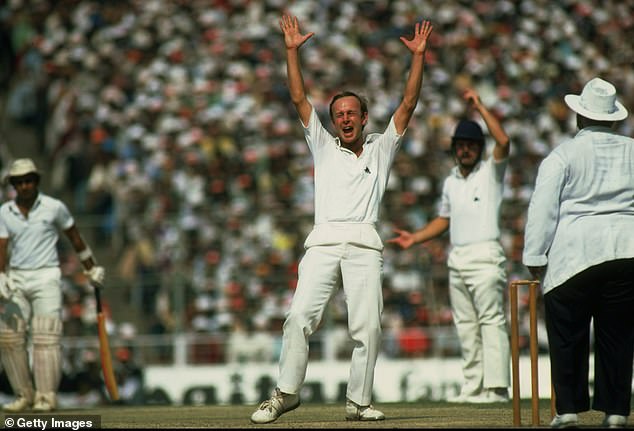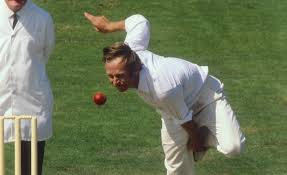

Known to his friends as 'Deadly' Derek Underwood
Derek Underwood was an absolutely unique spin bowler. Accuracy, intelligence and patience were his main weapons. He could dig a hole on the pitch by bowling at the same spot. He mostly played on the uncovered pitches His quick left arm cutters were was as nippy as a fast bowler’s bumpers when bowling on rain-affected pitches. The ball would rise alarmingly from the length and batsmen facing him would avoid coming on the front foot to save themselves from getting hit in the chest. Derek also had an outstanding ability to adapt to different conditions and was successful for most part of his career.
Derek Leslie Underwood was born on June 8, 1945 in Bromley, Kent. He was educated in the prestigious Beckenham and Penge Grammar School for Boys in Bromley. Derek played county cricket for Kent as a teenager and made his first-class debut against Yorkshire aged 17 in 1963, it didn't take him long to make his mark in first class cricket. He took 100 County Championship wickets in a debut season and became the youngest player to do so. He went on to take 100 wickets in a season a further nine times.

Derek was one of five England cricketers (the others being Alan Knott, Dennis Amiss, Bob Woolmer and Tony Greig), to feature in Kerry Packer’s World Series Cricket in the late 1970. He also was a part of the England team that went for the rebel tour of South Africa in 1981–82.
Derek played 86 Tests for England before retiring but, oddly, he didn’t feature in a whole Test series ever in his career. The reason behind this strange record is the ‘horses for courses’ attitude of the England captains he played under. The skippers would generally switch to bigger turners of the ball whenever a rank turner was on offer.
Derek's batting, like most bowlers, was very less accomplished. He averaged barely over 10 in his First class career spanning 676 matches. However, the summer of 1984 was a memorable one for Derek. Playing against Sussex, the left arm spinner recorded his first and only first-class century (111) at the age of 39, in his 591st first-class match. Derek went in to bat as night watchman but eventually ended up getting a famous hundred mark. The cricket writer Colin Bateman describes the innings as, “there was no more popular century that summer”.

Cricket in those times were played on uncovered wicket. Which meant that in case of heavy rain the pitch would remain uncovered, therefore becoming very difficult to bat on the next day. On bowler who was very famous for exploiting such condition was – Derek Underwood. He had a reputation of being almost unplayable on wet & soggy wickets. As a result, he nicknamed ‘Deadly.’ By his team mates.
The fifth test of the 1968 Ashes at the Oval is very famous for Derek's lethal bowling display. He did the unimaginable that day by snapping the last four Australian wickets in 27 balls in the final half an hour of the fourth day. Heavy thunderstorm on the fifth day forced the end of the match. Thereby, helping the home team clinch a famous 226-run win and square up the Ashes series that Australia were winning 1–0.
Another highly dramatic performance which Underwood put forth was at Hastings in 1973. In conditions similar to the famous Oval Test, Underwood demolished the Sussex batting order by taking 8 for 9. The day was a hard-working one for him. He along with his bare-footed Kent team mates helped the Fire Brigade mop up flooded ground.

Derek described bowling as, “low mentality profession – plug away, line and length, until there’s a mistake’, and sooner or later every batsman would make a mistake.”
Underwood’s penchant for wicket taking can be understood by the fact that he took 1,000th first-class wicket at the age of only 25. The only other bowlers who secured a thousand wickets at an earlier age than Derek were George Lohmann and Wilfred Rhodes.
Derek Underwood is the joint-first with Barnes on the list of England bowlers with most five wicket hauls in the 2nd innings with 10. The batsmen Derek Underwood dismissed more often Greg Chappell (13 times) and Sunil Gavaskar, Doug Walter (12 times each)
Derek’s average of 15.18 in wins is the third behind those of Barnes and Laker on the all-time list of England bowlers (minimum 100 wickets in wins).
In 1997, he was made the Patron of the Primary Club, and in 2008 he served as President of MCC for the following year.
Derek Underwood retired from international cricket in 1982 after playing 86 Tests and 26 ODIs for England. He continued to play county cricket until 1987. Following his retirement from playing cricket, Derek remained involved in the sport as a coach, administrator, and commentator. He was also awarded an MBE (Member of the Order of the British Empire) in 1981 for his services to cricket.

These facts highlight Derek Underwood's remarkable career and his lasting impact on English cricket.